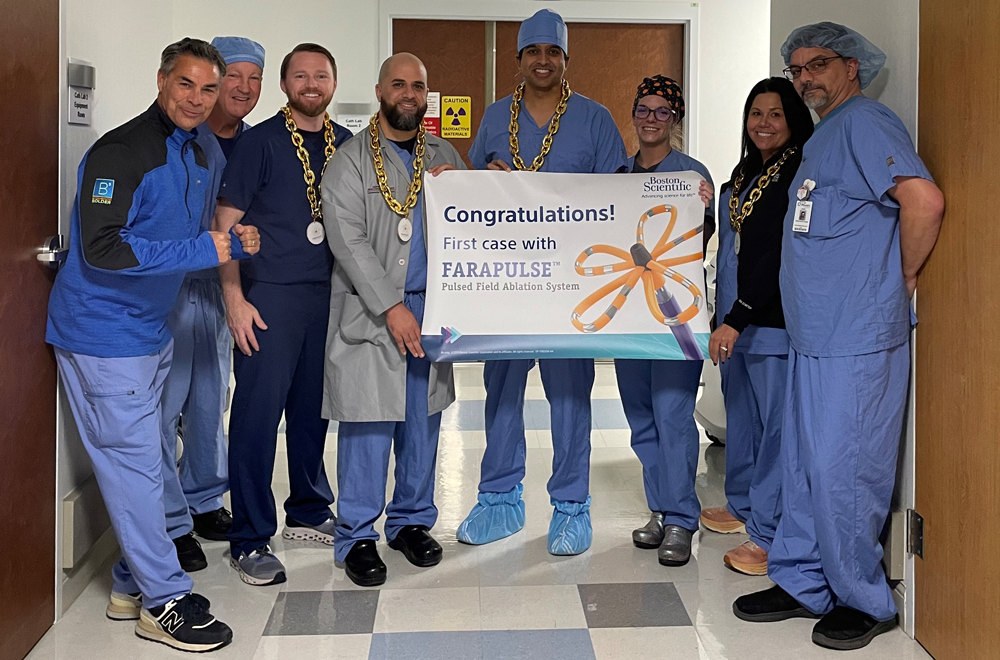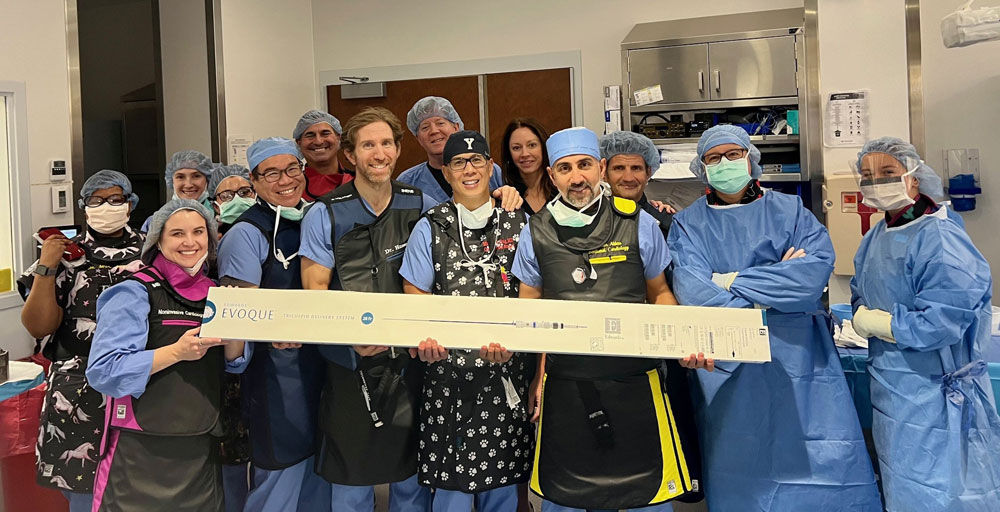

NORTHWEST INDIANA | Building on its reputation as a leader in cardiovascular care, the Structural Heart and Valve team at Community Hospital on Wednesday performed its 1,000th transcatheter aortic valve replacement. Known as TAVR, the procedure is a minimally invasive surgery used to treat aortic stenosis.
The American College of Cardiology has recognized Community Hospital for its demonstrated expertise and commitment in treating patients receiving transcatheter valve repair and replacement. Community Hospital has been awarded Transcatheter Valve Certification based on evaluation of the staff’s ability to meet standards for multidisciplinary teams, formalized training, shared decision-making and registry performance.
“Reaching this milestone of 1,000 procedures and earning the American College of Cardiology certification validates Powers Health’s cardiology program and the high-quality experience and skills of our team to provide evidence-based, patient-centered care,” said Samer Abbas, MD, an interventional cardiologist and medical director of Cardiovascular Services at Community Hospital and the Structural Heart and Valve Clinic of Powers Health.
Powers Health’s Structural Heart and Valve team has exceeded national benchmarks in quality and patient outcomes with TAVR. The program, which has participated in multiple clinical trials and research, has grown to become one of the most experienced in the Chicagoland area since being the first in Northwest Indiana to perform TAVR in 2017.
TAVR treats aortic stenosis, a disease that causes the aortic valve to narrow and restrict blood flow in the heart. The damaged aortic valve is replaced through the use of a catheter inserted into an artery in the leg and delivered and implanted in the heart. This minimally invasive approach saves patients from having to endure the rigors of a conventional open-heart surgery.
The procedure is performed in an advanced hybrid operating room as well as in a specially equipped cardiac catheterization lab. High-definition video integration technology aids the team in real-time image guidance and continual medical assessment. A team of fellowship-trained interventional cardiologists and cardiothoracic surgeons leads the procedure.
“One of the most common heart valve diseases seen in patients is aortic stenosis,” Abbas said. “If left untreated, aortic stenosis may be life-threatening. With the advanced technologies and expertise available at the hospitals of Powers Health, treating this serious disease is safer and more effective than ever before.”
The ACC’s Transcatheter Valve Certification is an external review and certification process that pairs with established national clinical databases to monitor patient safety and real-world outcomes related to transcatheter valve therapies. Participation in established national clinical databases is required for hospitals focused on achieving Transcatheter Valve Certification.
“Community Hospital has demonstrated its commitment to providing Northwest Indiana with excellent heart care,” said Deepak L. Bhatt, MD, MPH, FACC, chairman of the ACC Accreditation Management Board. “ACC Accreditation Services is proud to award Community Hospital with Transcatheter Valve Certification.”
The certification uses established national clinical measures to support clinical decisions and link process improvement to patient outcomes. Hospitals that achieve Transcatheter Valve Certification use evidence-based medicine to support patient-centered decision-making and track key performance metrics to better identify opportunities for improvement.
“Achieving this landmark moment and receiving this certification exemplifies the dedication of our comprehensive Structural Heart and Valve program to provide minimally invasive procedures, led by a collaborative team of interventional cardiologists, cardiothoracic surgeons and specially trained nurses, technicians and imaging specialists,” said Dale O’Donnell, vice president of Cardiology Services for Powers Health.
The ACC offers hospitals like Community Hospital access to a comprehensive suite of cardiac accreditation services designed to optimize patient outcomes. These services are focused on all aspects of cardiac care, including transcatheter valve therapies.



